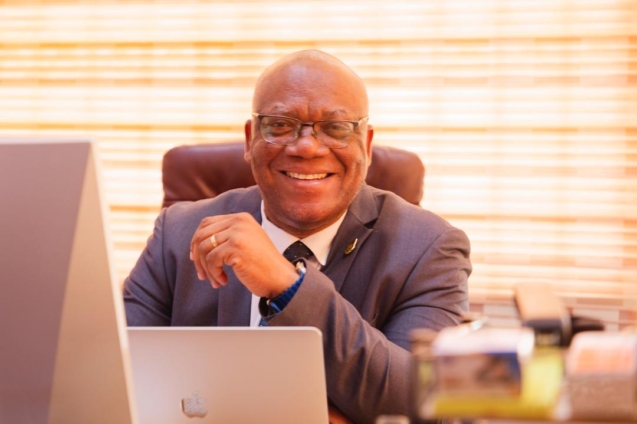The Artificial Intelligence for Sustainable Development (AI4SD) project is leading the charge in addressing some of the world’s most pressing challenges in Ghana and across the globe.
The project focuses on leveraging artificial intelligence (AI) to address all 17 SDGs, with particular emphasis on SDG 1 (no poverty) and SDG 2 (zero hunger).
One of the focus areas of intervention is agriculture, where AI solutions will be deployed to increase productivity.
Project lead for the AI4SD initiative, Prof. Jerry John Kponyo shares his vision for how AI can accelerate progress towards the United Nations Sustainable Development Goals (SDGs).
“We’re deploying most of AI tools we’re developing in the labs to the field to boost agricultural productivity starting with the land we have secured at Anwomaso in the Ashanti Region. Our goal is to scale these solutions to address hunger and poverty,” he said.
Beyond agriculture, the AI4SD will tackle other critical sectors, including illegal mining activities, which threaten water bodies and food sources.
“We want to deploy AI tools to clean our water bodies and ensure our food is safe for consumption,” Prof. Kponyo explains.
The 10-month project is operating under the Responsible Artificial Intelligence Lab, which is supported by IDRC Canada, GIZ of Germany and FCDO (UK’s international development wing).
The project is also exploring the potentials of AI to revolutionize healthcare delivery in Ghana.
It will harness the tools to diagnose rare diseases that are often difficult for medical professionals to identify.
“AI can make it easier to diagnose conditions that are challenging to identify in the various consulting rooms,” he added.
In addition to these sectors, the AI4SD project is committed to fostering innovation and entrepreneurship. By encouraging AI-powered startups, the project aims to create new opportunities for economic growth.
Prof. Kponyo also highlights the importance of inclusivity, particularly relating to gender diversity as the project seeks to support differently-abled individuals, using AI technologies to bridge the inequality gap.
“We’re actively working to bring more women into the technology space, especially through AI education initiatives like robotics clubs in Senior High Schools,” he said.
Prof. Kponyo envisions AI as a tool for social good, helping marginalized communities overcome barriers and access opportunities.
The project is receiving special support from the French Government through the French Embassy in Ghana, with additional collaborations in Africa and a satellite lab in Cape Verde.
Stakeholders of the initiative envision upscaling the project and called on actors in the various areas to collaborate for effective execution.
Latest Stories
-
I promised only 60 ministers, yet thousands of people are sending their CVs – Mahama
10 minutes -
President Mahama urged to empower the youth to drive economic growth
23 minutes -
Minority leader slams Mahama over ‘Tot Tot’ ministerial appointments
49 minutes -
AU leaders meet to approve new framework for development of Africa’s agriculture
49 minutes -
Everton sack Sean Dyche
1 hour -
Kwahu Professionals Network congratulates Julius Debrah on appointment as Chief of Staff
1 hour -
Leave a legacy of a transformed Northern Ghana – Mahama urged
1 hour -
Anim Addo’s comments do not reflect the clubs position – Young Apostles
2 hours -
Gov’t hasn’t contracted anyone to produce framed presidential portrait – Office of the President
2 hours -
Katamanto fire: The Or Foundation donates GH₵1m to help traders rebuild
2 hours -
Samuel Anim Addo: former Executive Council member charged for misconduct over social media comments
2 hours -
GFA Disciplinary Committee charges Anim Addo over complaints about referee Hanson
2 hours -
Guinness Ghana DJ Awards 2025: Countdown to Nov 29 begins
2 hours -
Symbolisms of Mahama’s inauguration and urgent need for resetting our country
2 hours -
Mahama will soon be ordained as a pastor – Sonnie Badu
2 hours

